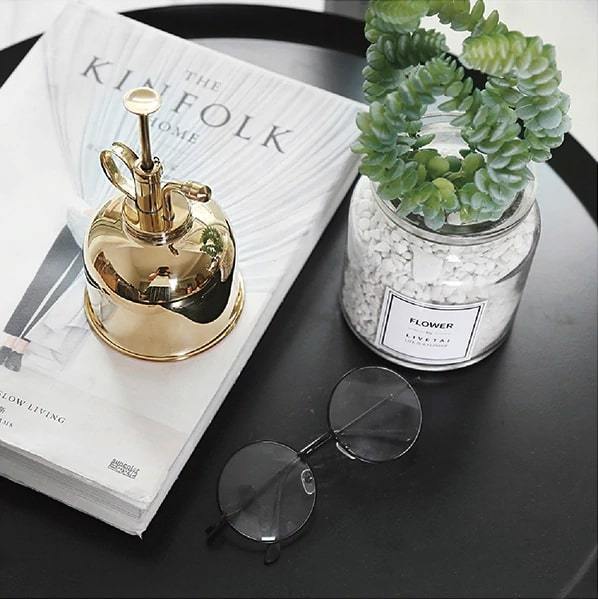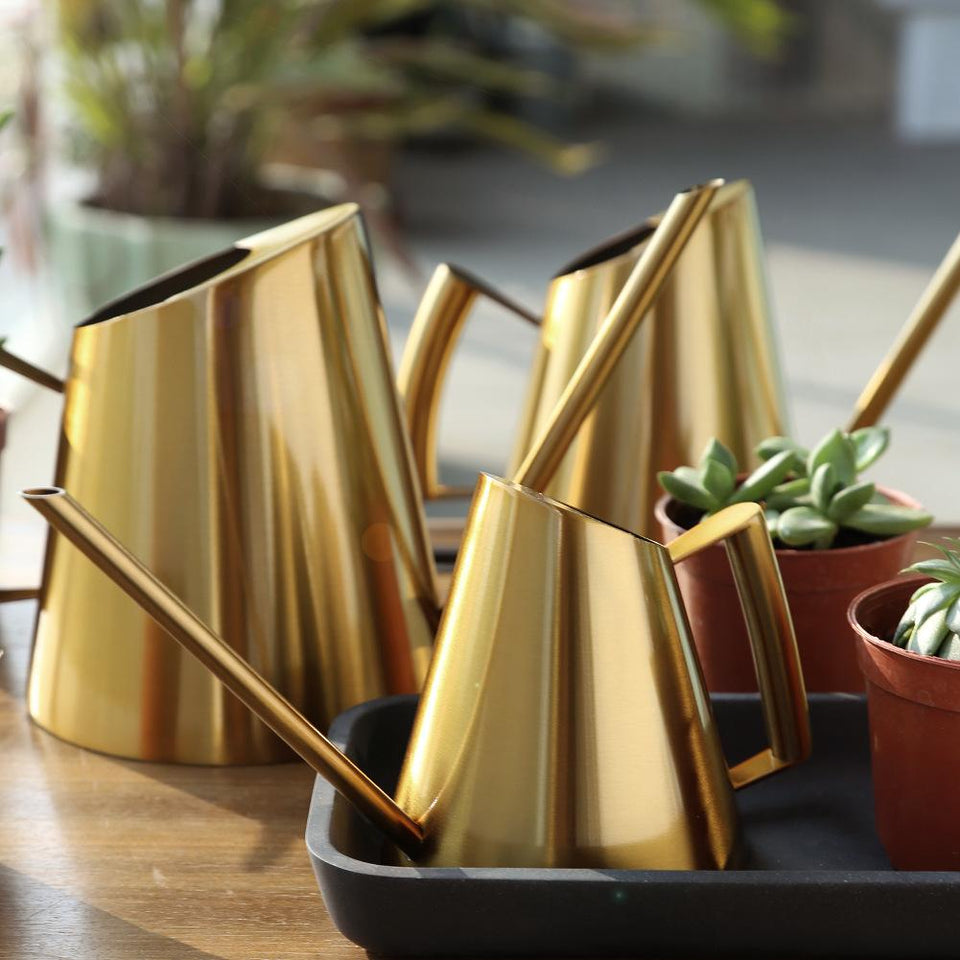
Watering your plants with demineralized water?
of reading
Do you have a water container for your iron and wonder if your plants would like it too? Or perhaps you're looking for a solution to that white deposit that stains the leaves of your Ficus?
Tap water is often too hard (calcium-rich) for some delicate plants. Demineralized water seems to be the perfect solution. It's pure, chlorine-free, and free of limescale.
But be careful: using it undiluted and all the time can cause deficiencies. Let's discover together when to use it and for which plants.
1. Demineralized Water: The Queen of Mist Spraying
If there's one use where demineralized water is mandatory, it's for the Vaporizer . Why?
- For the plant: Tap water leaves white (limescale) deposits on the leaves as it dries. These deposits clog the plant's pores and are unsightly. Demineralized water leaves the foliage spotless.
- Regarding the tool: Limescale is the enemy of your sprayer. It always ends up clogging the fine nozzle. Using demineralized water guarantees the longevity of your equipment.

Protect your investment
A beautiful spray bottle deserves good water. By using demineralized water in our brass model, you'll maintain a perfect mist year after year.
- ✨ Zero Trace: Your plants stay shiny and clean.
- ⚙️ Preserved Mechanism: No more nozzles clogged by limescale.
2. Which plants need pure water?
Root watering with demineralized water isn't necessary for all plants (it's expensive and unnecessary for a geranium!). However, some species hate minerals and lime. For them, it's a matter of survival.
🥩 Carnivorous Plants (Venus Flytraps, Sundews)
This is rule number one. In nature, they grow in very poor soil. Water a carnivorous plant with tap water (rich in minerals), and you'll burn its roots in a few weeks. For them: demineralized water or rainwater is essential.
🌸 Acid-loving plants (Azaleas, Orchids, Ferns)
These plants prefer acidic soil. Tap water (often hard/alkaline) will unbalance their soil and cause their leaves to yellow (chlorosis). Watering with demineralized water occasionally helps to rinse the soil.
3. Beware of deficiencies!
While demineralized water is "clean," it is also "empty." It contains neither calcium, nor magnesium, nor iron.
If you water a classic plant (Ficus, Pothos, Monstera) only with demineralized water, it will eventually suffer from deficiencies and its growth will stop.
The solution? Mix it up! Use a 50/50 mix (half tap water, half demineralized water) or add liquid fertilizer regularly to compensate.
4. How can I improve my tap water for free?
If you don't have carnivorous plants, tap water is often sufficient. Its only drawback is the chlorine (added to make it drinkable), which kills beneficial microorganisms in the soil.
The Sprinkler's Tip: Chlorine is a volatile gas. Fill your watering can and let it sit for 24 hours in the open air before watering. The chlorine will evaporate on its own!
Patience has style
Letting tap water sit is good. Doing it in a stylish container is even better. Stop leaving plastic bottles lying around: use our gold watering can as a carafe for your plants.
- ✨ Stainless steel: Water can remain in it for days without risk of rust.
- 🏆 Best-Seller: Its gold finish captures the light and enhances your interior.

In summary
Demineralized water = Essential for your Vaporizer and your Carnivorous Plants.
Tap water (that has been left to stand) = Perfect for watering all other plants.
Equip yourself with the right tools to manage these two types of water with elegance.
See the Designer Watering Cans collection




